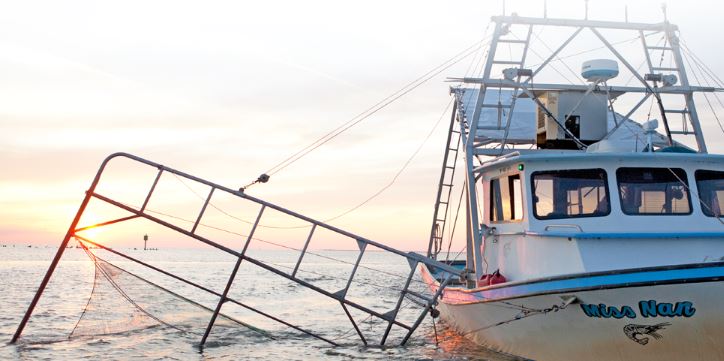A $300 million earmark in the Senate's $2.2 trillion coronavirus stimulus bill passed late Wednesday, March 25, is slated for fisheries and aquaculture. It's aimed at supporting independent operators who are not otherwise covered by agricultural disaster assistance programs.
[Update: President Donald Trump signed the bill into law shortly after it passed through the U.S. House of Representatives on a voice vote, Friday, March 27. Stay tuned for more details on how these benefits will be accessible to commercial fishermen and other independent operators.]
The Senate passed the Coronavirus Aid Relief and Economic Security (or CARES) Act late Wednesday, March 25. It returns to the House of Representatives for a vote on Thursday, March 26. The bill is designed to stimulate the economy in the wake of the coronavirus pandemic that has led to widespread shutdowns intended to slow the spread of the virus.
The language in the fisheries portion of the bill stipulates that the funds are "authorized to provide assistance to Tribal, subsistence, commercial, and charter fishery participants affected by the novel coronavirus."
It specifies that this fund is designated for businesses not covered by agricultural relief programs defined by part 1416 of title 7 of the Code of Federal Regulations.
"Tribes, persons, fishing communities, aquaculture businesses not otherwise eligible for assistance under part 1416 of title 7 of the Code of Federal Regulations for losses related to COVID–19, processors, or other fishery-related businesses, who have incurred, as a direct or indirect result of the coronavirus pandemic — economic revenue losses greater than 35 percent as compared to the prior 5-year average revenue."
Funds may be awarded on a rolling basis "and within a fishing season to ensure rapid delivery of funds," which will remain available until Sept. 30, 2021.
At press time, the agency that will oversee applications for relief funds under the Commerce Department is to be determined.
The National Coalition for Fishing Communities made a statement thanking the industry for uniting in requesting help from federal legislators and also Sens. Edward J. Markey (D-Mass.), Lisa Murkowski (R-Alaska), Elizabeth Warren (D-Mass.) and Dan Sullivan (R-Alaska) for their quick action in speaking on behalf of the industry in a letter to Senate leaders.
“The speed with which the domestic seafood industry has come together to speak with one voice is unprecedented,” said Bob Vanasse, executive director of Saving Seafood, which organized the coalition. “There are many differences in our nation’s fisheries — geography, species, gear types and management — but today our fisheries are simultaneously diverse and unified. We look forward to working together across traditional industry lines, and with elected officials and administrators, to ensure the aid the federal government is providing will flow fairly and equitably across regions and fisheries.”







